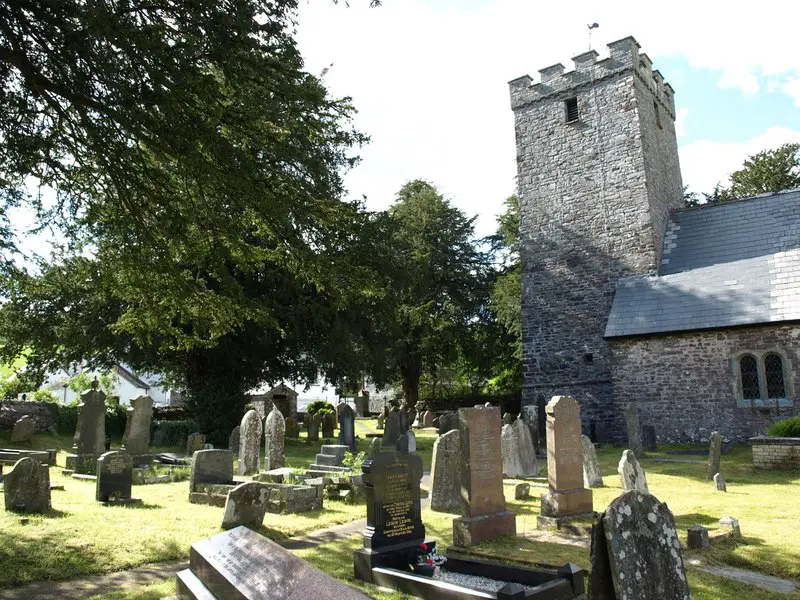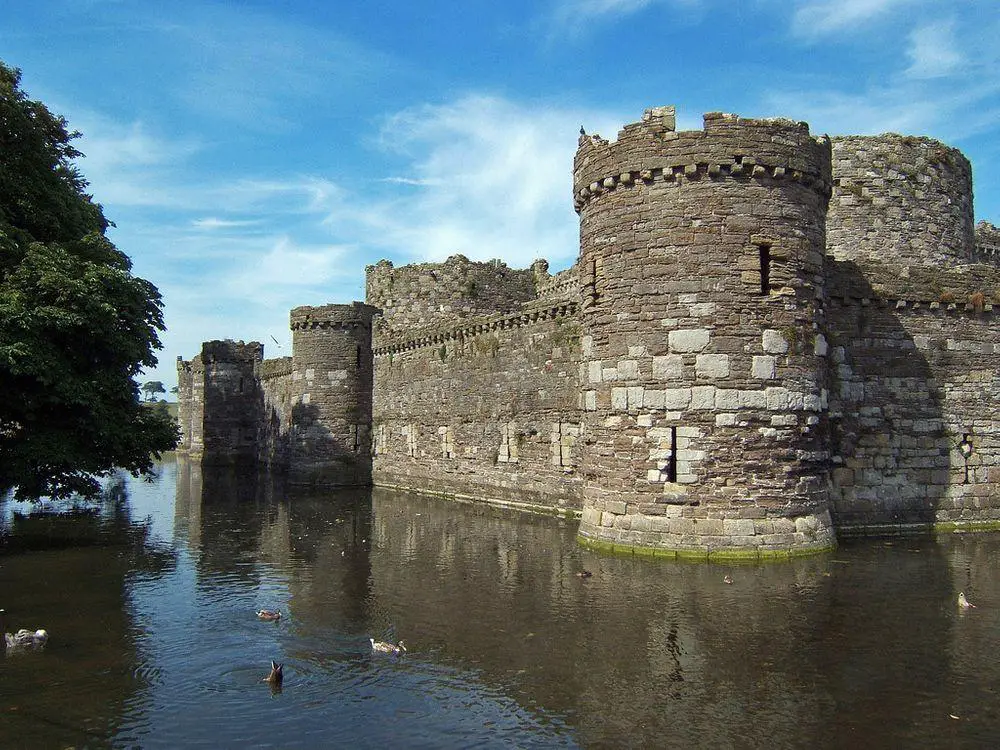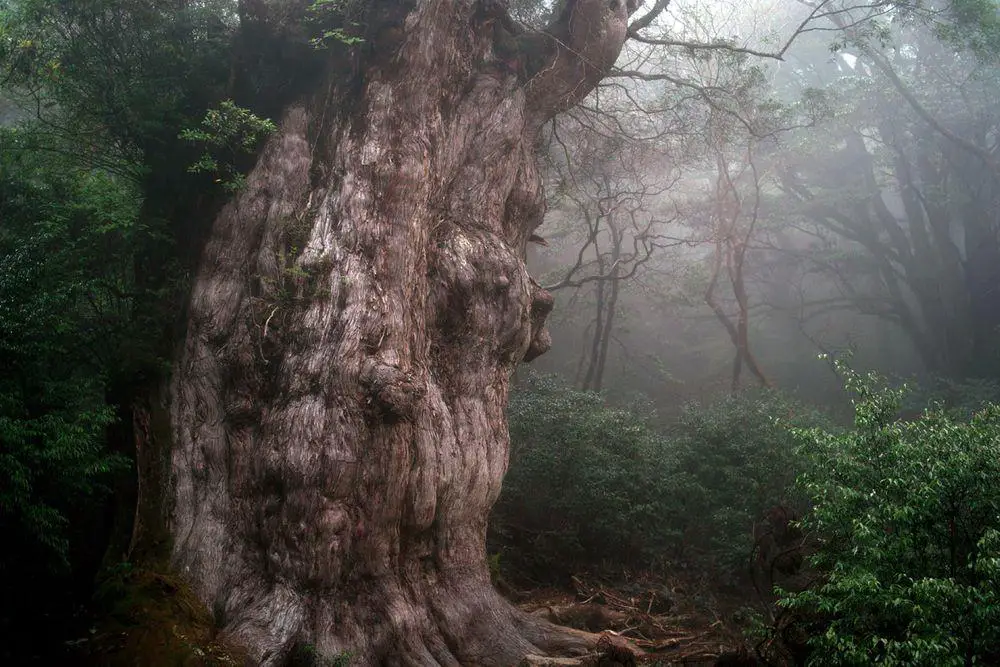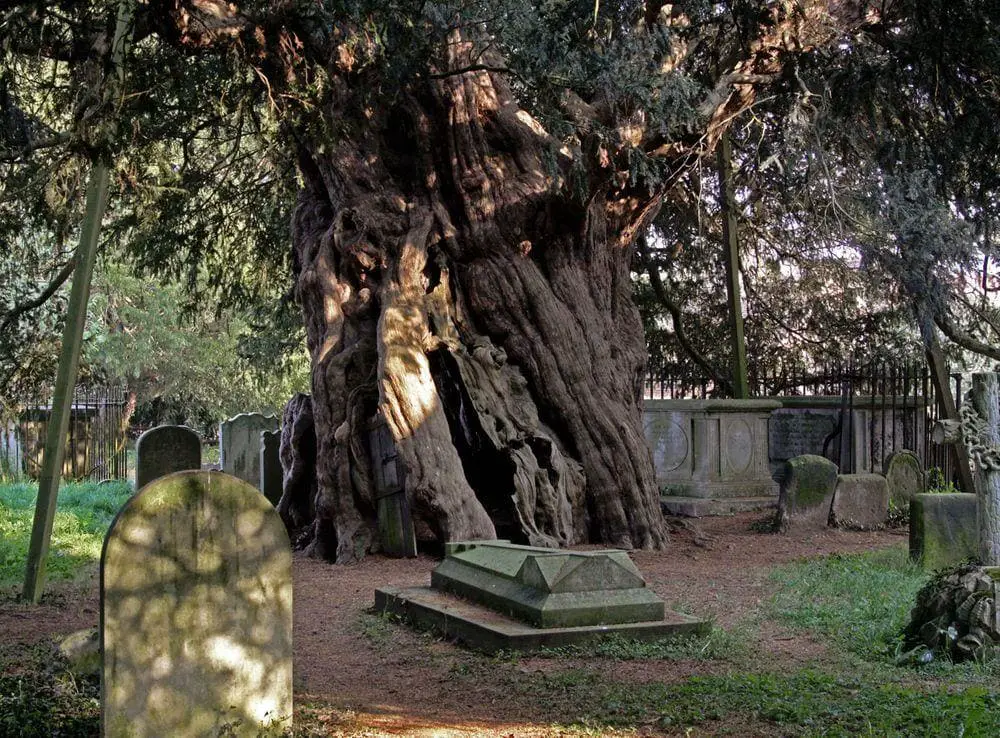World 🢖 Europe 🢖 United Kingdom 🢖 Wales 🢖 Powys
Wonder
Yew trees at Ystradfellte St. Mary’s Church

 In short
In short
Around the medieval St. Mary’s Church in Ystradfellte grow six enormous, ancient yew trees. One of them in the past was especially large – circumference around its separated trunks now is 10.67 m.
 35.3%
35.3%
GPS coordinates
Location, address
Species
Circumference
Map of the site
If you see this after your page is loaded completely, leafletJS files are missing.
 In detail
In detail
Ystradfellte is a picturesque village in the Brecon Beacons National Park, well known thanks to picturesque waterfalls and caves nearby.
Similar to many other historical villages of Wales, Ystradfellte has a medieval church and around this medieval church are several old yew trees.
St Mary’s church
The age of St Mary’s church is not known with certainty, but, most likely, it was built in the 15th century, its tower was constructed in the 16th century. Chancel in the church, most likely, also was made in the 16th century.
The present-day church is a result of extensive reconstructions in the second half of the 19th century. Last renovations were done in the 1970ies.
There is a historical village cemetery around the church, flanked by six magnificent yew trees.
Yews of Ystradfellte
According to the measurements by the Ancient Yew Group (Tim Hills) the size of the trees is as follows (1.):
- Tree 1: circumference at the height of 0.6 m was 4.19 m in 2021. Female.
- Tree 2: circumference at the height of around 0 – 0.3 m was 7.22 m (2021). A beautiful, enormous tree with a hollow, female.
- Tree 3: circumference at the ground level was 10.67 m. This measurement sounds more impressive, while in nature there is just one smaller trunk (4.1 m circumference) standing – measurement is made around a purported body of former tree that was divided into several stems later. The other stem was cut in 1990ies and now almost nothing testifies the enormous size of the former tree.
- Tree 4: circumference at the ground level was 5.9 m in 2021. Male.
- Tree 5: circumference at the height of 0.75 m was 4.4 m in 2021. Female.
- Tree 6: circumference at the height of 0.3 m was 5.23 m in 2021. Female.
The age of the trees is unknown. As it is usual, some consider that these yews are significantly more than 1000 years old, but – it is nearly impossible to tell the real age of these trees, as the core of the trees is lost. Each of the trees grows on a small mound.
References
- Yew/Yews at Ystradfellte Wales, Ancient Yew Group. Accessed on December 2, 2023.
- YSTRADFELLTE – ST MARY’S CHURCH, Ancient and medieval architecture. Accessed on December 2, 2023.
Yew trees at Ystradfellte St. Mary’s Church are included in the following article:
 Linked articles
Linked articles

Wonders of Wales
In Wales are located some of the most beautiful caves and waterfalls in the United Kingdom but even more are some of the world’s most impressive castles as well as medieval towns, palaces, and interesting archaeological monuments.

Trees
The category includes some of the most impressive and interesting separate trees in the world. The total number of tree species in the world still is a wild guess – maybe 10,000 and maybe 100,000 but most likely somewhere in between. Every month there are reported new tree species from the whole world, including Western Europe.

Wonders of the United Kingdom
Throughout many centuries the United Kingdom has enjoyed relative political stability and wealth. As a result, humans have created here countless amazing and well-preserved values of art and history.
 Recommended books
Recommended books
The God Tree
The God Tree is a great read and will make people think again and again about Yews’ – David Bellamy, the Naturalist. This is the first book to take up the quest for the Golden Bough since JG Frazer’s classic study in 1915 with the discovery of the bough growing once more, as the rare adornment of a small number of ancient Yews.
The Ancient Yew: A History of Taxus baccata
The gnarled, immutable yew tree is one of the most evocative sights in the British and Irish language, an evergreen impression of immortality, the tree that provides a living botanical link between our own landscapes and those of the distant past. This book tells the extraordinary story of the yew’s role in the landscape through the millennia, and makes a convincing case for the origins of many of the oldest trees, as markers of the holy places founded by Celtic saints in the early medieval ‘Dark Ages’.



